Ideas are powerful. Arriving at the right time, they can alter the entire direction of your life.
But ideas also hide in the background, acting as assumptions. Quietly influencing your decisions, whether they’re true or false.
Looking back, I can think of a number of ideas that shaped my life. Some are only obvious in retrospect. Others I took great pains to learn. Below are the ten that had the greatest impact on me.
1. Reality is Malleable
Steve Jobs, here in a 1994 interview with the Santa Clara Historical Society, presents one of the ideas that changed his life:
Most of us will have far less impact than Jobs did. Yet in the smaller spheres of our own lives, there is impressive flexibility. Ideas can only change your life if you first accept the idea that life can be changed.
2. Most Actions are Automatic
The vehicle for change is not ideas, but actions. Merely thinking up a new life for yourself does no good.
An important realization, then, is that much of our actions are performed without reflection. We repeat the same patterns endlessly, and in that repetition, create our lives. Real change rarely arrives from a single exertion, but from rewriting our scripts.
One of the first ideas I really ran with was the 30-Day Trial. The idea being that you commit yourself to a particular daily habit, for at least a month. Long enough to make the habit feel comfortable. Short enough that you can commit to ambitious efforts.
Two books worth reading in this regard are James Clear’s Atomic Habits, an excellent summary of the science of behavior and David Allen’s Getting Things Done, which provides a system for coordinating all your efforts.
3. Ambitious Goals Increase Effort
Edwin Locke pioneered the experimental study of goal-setting. His rigorous research remains a pillar in our understanding of human motivation. Through these experiments he found two things:
- Harder goals produce better results, provided they’re committed to.
- Specific targets work better than vague suggestions to “do one’s best.”
Ambition itself has a high return. Economists Stacy Dale and Alan Kreuger sought to calculate the return to attending a selective school. They found that, when you control for the average SAT score of the school you applied to and the number of applications you submitted, the premium was negligible.
However, what this study also found was that applying to more difficult schools had an impressive return. Having the ambition to apply to lots of good schools, even if your own SAT score was mediocre, has a surprisingly high return.
All of this suggests that setting difficult, ambitious goals and committing to them has a bigger impact than many people realize.
4. Some Progress Slows, Others Accelerate
A naive view of progress is to extrapolate in a straight-line. Yet our efforts tend to be dominated by two different trends: diminishing returns and compounding growth.
Diminishing returns happen when efforts crowd each other out. The first hour of studying is your most energetic. The fifteenth is exhausting. As efforts become increasingly unproductive, a key realization is often to know how good is good enough.
Compound growth occurs when each past improvement helps further growth. What initially looks like a trickle will end in a torrent. The problem is often one of patience. Since the beginning efforts seem unrewarded, they’re often abandoned before they can really start to work.1
Understanding what kind of growth you’re facing prepares you for progress. In general, we underinvest in compound growth because it looks like a waste of time. We overinvest in diminishing returns, trying to renew past accomplishments.
5. Life is Largely Positive-Sum
For most of recorded history life has been overwhelmingly zero-sum. Living standards were stagnant, innovation was invisible and the only way to improve your life was to make someone else’s worse.
Injunctions against striving and wealth were common in many ancient philosophies. Jesus argued that the rich man could not get into heaven. Laozi preached non-doing as the supreme virtue. Some of this is a counterweight to our normal human egoism. But it partly reflected the situation of the time—most of the roads to worldly success came at the expense of other people.
In modern times, however, the major way that we have become rich isn’t through plunder, but through invention and service. Our lives are dominated by positive-sum activities—we improve our lots largely by making life better for others.
6. Fear is Overcome Through Exposure
When I was a child, I had a strong fear of heights. Glass elevators put my stomach in knots. Yet years later, I have been both skydiving and bungee jumping. The change came from exposure.
Exposure therapy is one of the most successful psychiatric therapies we have. It works to reduce an irrational fear by exposing you to the object of your fear combined with safety. Research suggests up to 70% of people may be helped.
Public speaking, talking to strangers or taking tests can all create a paralyzing anxiety. Knowing how to dial them down, even if it takes more work than flipping a switch, can make a big difference.
7. Success is Stamina
Philosopher James Carse made the distinction between finite and infinite games. A finite game, like chess, is one which you play for awhile and then you either win or lose. An infinite game, in contrast, never ends. To win means to keep playing.
Most of the activities we care about in life are infinite games. Businesses don’t “win” the market and quit. Health isn’t over once you’ve reached your weight-loss goal. Even knowledge decays and renews as you learn more things.
Conversely, if you can keep going you haven’t lost. Apple was on the brink of disaster just over two decades ago. Yet the game kept playing and they wound up as the most valuable company in the world. At least for now.
Stamina is the central virtue in a world full of infinite games.
8. Attention Determines Your Direction
The quality of your life is, to a large extent, determined by what you pay attention to. Yet most of what grasps at our attention isn’t very high-quality.
Like weeds overrunning a garden, much of our minds’ space gets filled up with things that neither improve our lives nor prepare us for danger. Often it isn’t even pleasant, which could be an excuse for useless thoughts. Anxiety and anger about things we cannot control.
But like a prudent gardener, you can choose what you let grow in your mind. The conversations you have, books you read and news you follow are all seeds you can choose to water.
9. We’re Fundamentally Free
In my favorite novel, The Count of Monte Cristo, the protagonist, Edmond Dantes, is unfairly imprisoned for fourteen years in Chateau d’If. He spends most of the time brooding, raging and eventually attempting suicide. He is stopped from finally following through by the digging of his prison neighbor, the Abbe Faria who accidentally reaches his cell rather than escape.
Faria, who has been imprisoned longer than Dantes, has instead spent his captivity improving his mind—practicing languages, developing tools and reconstructing manuscripts from memory.
Freedom, in the sense of being able to do whatever you want is possessed by varying degrees by different people. Perhaps the situation of your life is quite constrained, or you’re confronted only by choices you don’t like very much. Increasing our options (and the options of other people) is part of what makes the good life.
Yet there’s a more basic sense of freedom, one understood by Alexandre Dumas as he wrote about the character of Abbe Faria. This freedom isn’t always pleasant to contemplate. Jean-Paul Sartre even described it as nauseating. As such, we often try to rid ourselves of it. Yet, if we accept it and make our choice there’s joy on the other side.
10. Happiness is in the Pursuit, Not the Possession
It’s obviously true that life is better when you have friends, money and status. But it’s not that much better. Most often the absence of problems simply feels like nothing. Even when you achieve your dreams, your mind creates problems to fill the gaps. New pangs of hunger that you never felt before.
This can be a depressing realization or a liberating one. Depressing, because it means that many of the things you think should provide enduring happiness often fail to do so. Life has no happily ever after, simply more life.
But it’s also liberating because it suggests that we are what we do, much more than what we have. Engaging in meaningful pursuits, that help yourself and others, is a more satisfying way to live.
Seeing this, you can adapt your posture even if you feel like there are still many goals you have yet to reach. Instead of striving to attain some ideal of life, you can organize energy around pursuits that matter. In doing so, you can realize that ideal right now.
Footnotes
- It should be noted that not all accelerating growth is exponential. Super-linear growth can occur when past items help, but the help itself crowds itself out. Learning, for instance, helps future learning. But it’s not exponential as that would require that every piece of knowledge help every future piece of knowledge. Instead, only a small fraction likely helps in each instance.




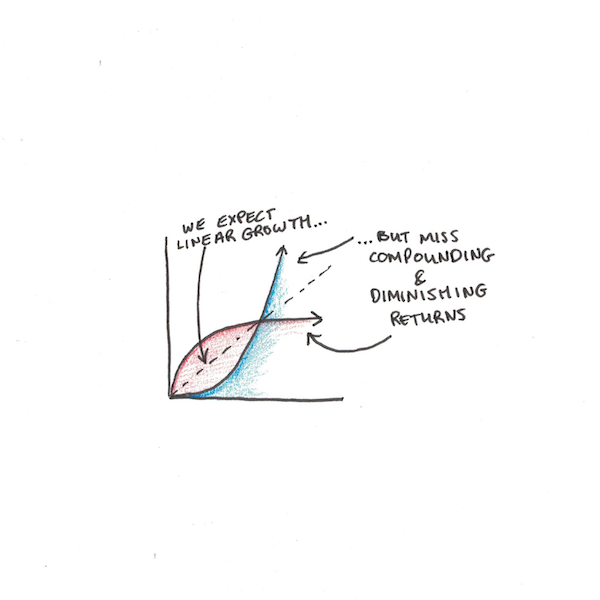
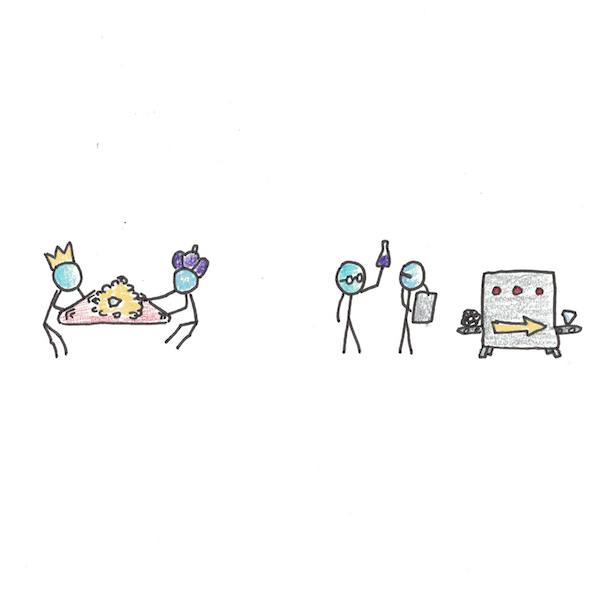

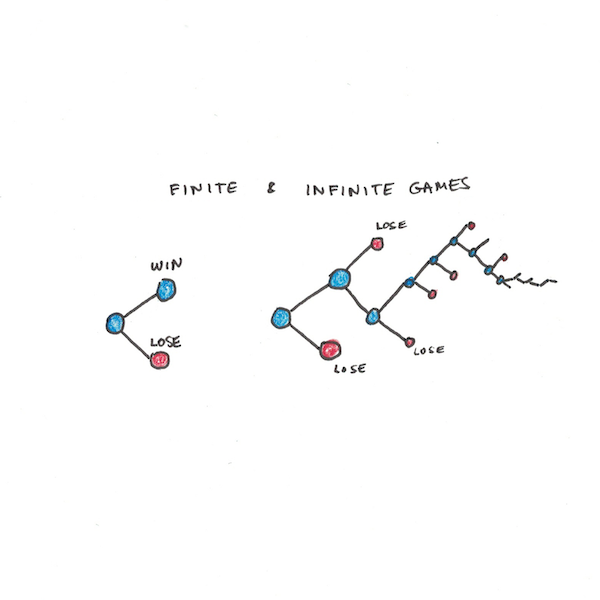
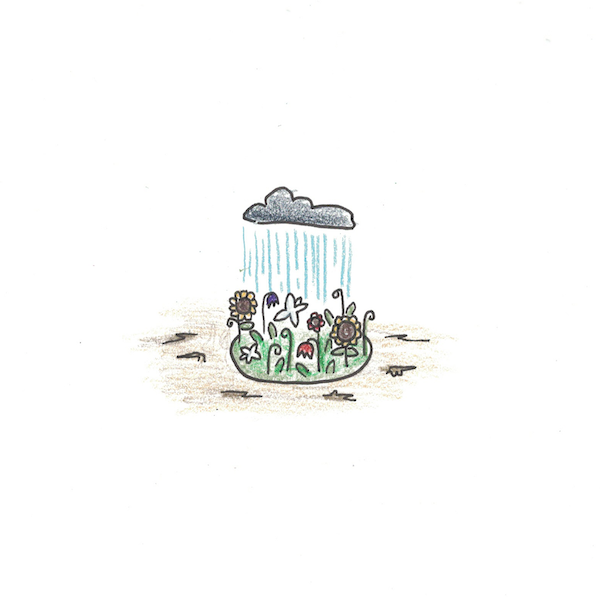
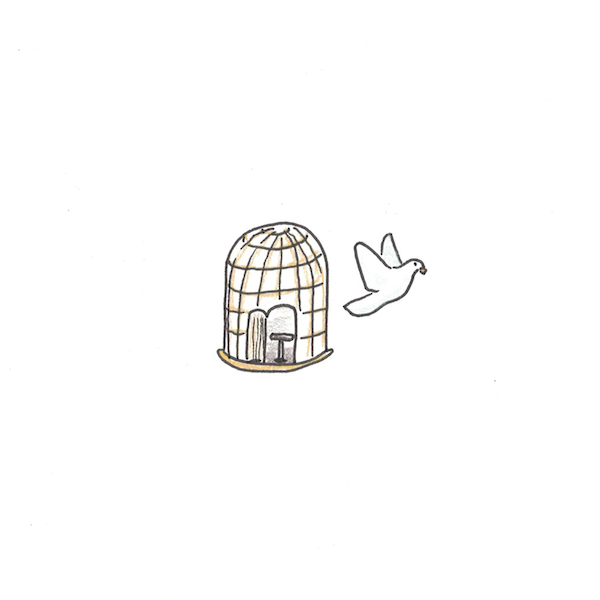

 I'm a Wall Street Journal bestselling author, podcast host, computer programmer and an avid reader. Since 2006, I've published weekly essays on this website to help people like you learn and think better. My work has been featured in The New York Times, BBC, TEDx, Pocket, Business Insider and more. I don't promise I have all the answers, just a place to start.
I'm a Wall Street Journal bestselling author, podcast host, computer programmer and an avid reader. Since 2006, I've published weekly essays on this website to help people like you learn and think better. My work has been featured in The New York Times, BBC, TEDx, Pocket, Business Insider and more. I don't promise I have all the answers, just a place to start.